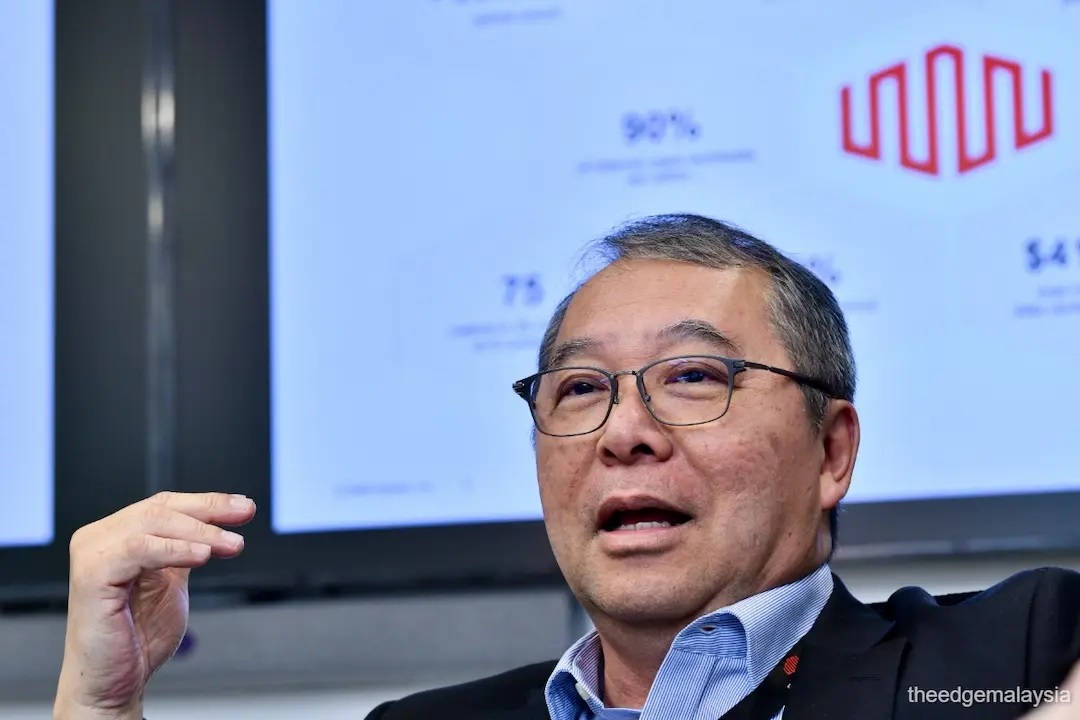US firm Equinix completes second phase of data centre in Cyberjaya

- The latest expansion adds 450 cabinets to the KL1 facility, bringing its total capacity to 900 cabinets once operational, with a power load of 2.4 megavolt-amperes (MVA).
CYBERJAYA (May 7): Nasdaq-listed digital infrastructure company Equinix Inc has completed the second phase of its KL1 International Business Exchange (IBX) data centre in Cyberjaya, Selangor.
The latest expansion adds 450 cabinets to the KL1 facility, bringing its total capacity to 900 cabinets once operational, with a power load of 2.4 megavolt-amperes (MVA), according to Equinix Malaysia managing director Cheam Tat Inn.(pictured)
“We have seen an encouraging momentum over the past year, with both our Kuala Lumpur and Johor facilities gaining traction among local and international businesses,” Cheam said during a media tour at the KL1 facility here.
He noted that the KL1 data centre is part of Equinix’s broader strategy to support Malaysia’s growing digital economy and position the country as a regional data hub.
Equinix has invested approximately US$100 million (RM422.9 million) in the KL1 IBX facility. Further, the company has acquired a 14,300-square-metre plot of land in Kuala Lumpur for RM23 million in July 2024, where it plans to build a second facility, dubbed KL2.
The new site is currently in the planning stage, with no timeline yet disclosed for its completion. Once operational, the expected combined power capacity of both KL1 and KL2 is projected to reach 4.8 megawatts.
The new facility will add to Equinix’s existing Johor Bahru data centre, known as JH1 that was developed in 2022 with a capital expenditure of US$40 million. The JH1 site currently supports nearly 600 cabinets, which are now fully occupied.
According to Cheam, Equinix’s Malaysian facilities are directly linked to its data centre campus in Singapore through Equinix Fabric, an on-demand software-defined interconnection platform that allows enterprises to integrate infrastructure across borders.
He noted that the network supports a digital ecosystem of over 1,000 companies, enabling seamless cross-border connectivity.
Equinix is also eyeing further expansion across Southeast Asia, including Indonesia, the Philippines and Thailand, to enhance its position as a key digital infrastructure provider in the region.
Challenges encountered
Addressing concerns surrounding the development of data centre operations in Malaysia, Cheam pointed to a mix of external and infrastructure-related challenges—from geopolitical tensions to basic utility provisioning.
On the impact of the US government’s export restrictions on Nvidia’s high-performance chips, Cheam said the company is keeping a close watch on developments.
“Right now, we are still evaluating how this will affect our customers. Our Johor facility is already fully occupied, with no room for further deployments, while in KL1, all existing deployments are high-performance computing-related,” he said.
He explained that Equinix does not directly procure graphics processing units (GPUs), but instead provides the physical infrastructure—namely power and space—for clients to deploy their own servers. As such, the impact of supply chain restrictions is somewhat mitigated at their end, he noted.
On water supply concerns—a growing issue for hyperscale data centres, Cheam said while traditional suppliers like Air Selangor and SAJ Ranhill remain important, new alternative providers are emerging to support industrial-grade needs.
“For data centres, we don’t require potable or treated water. What we need is filtered water, which is far less complex to manage. Many new companies are now stepping in to offer these solutions,” he said.
Cheam added that operators are increasingly adopting sustainable approaches, including sourcing non-potable or recycled water, to support large-scale cooling needs in an environmentally responsible way.
Want to have a more personalised and easier house hunting experience? Get the EdgeProp Malaysia App now.
Never miss out
Sign up to get breaking news, unique insights, event invites and more from EdgeProp.
Latest publications
Malaysia's Most
Loved Property App
The only property app you need. More than 200,000 sale/rent listings and daily property news.
